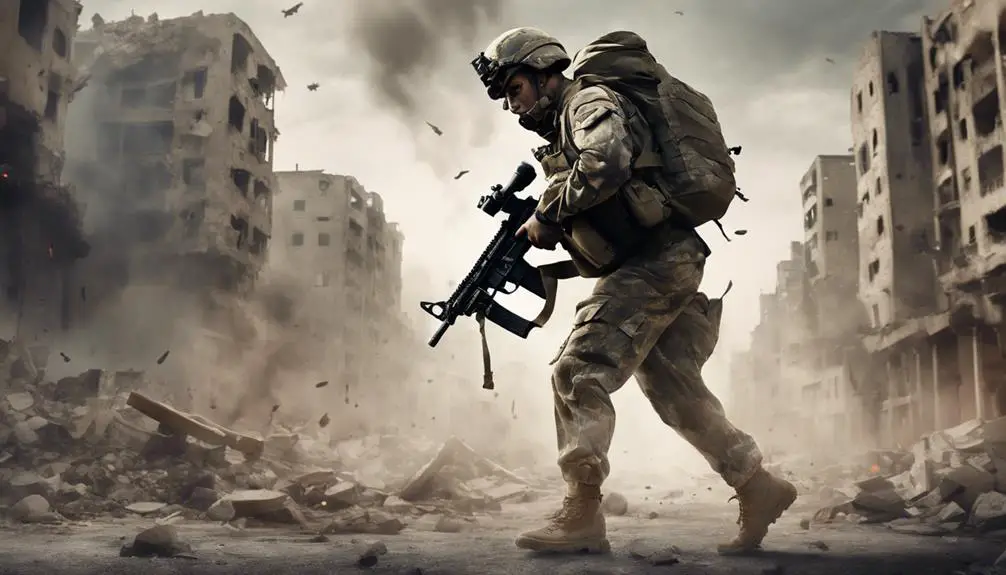When you hear "Oscar Mike" over the radio, you know it's time to move out – a phrase that's been synonymous with "go forward" in military slang since its origins in the NATO phonetic alphabet. This term evolved from a need for clear communication in combat, where every second counts. You'll find "Oscar Mike" used in various branches of the military, as well as in popular culture, from war movies to gaming communities. It's more than just a phrase – it's a call to action, motivating individuals and teams to take decisive action. Want to know more about the power of "Oscar Mike"?
The Origins of Oscar Mike
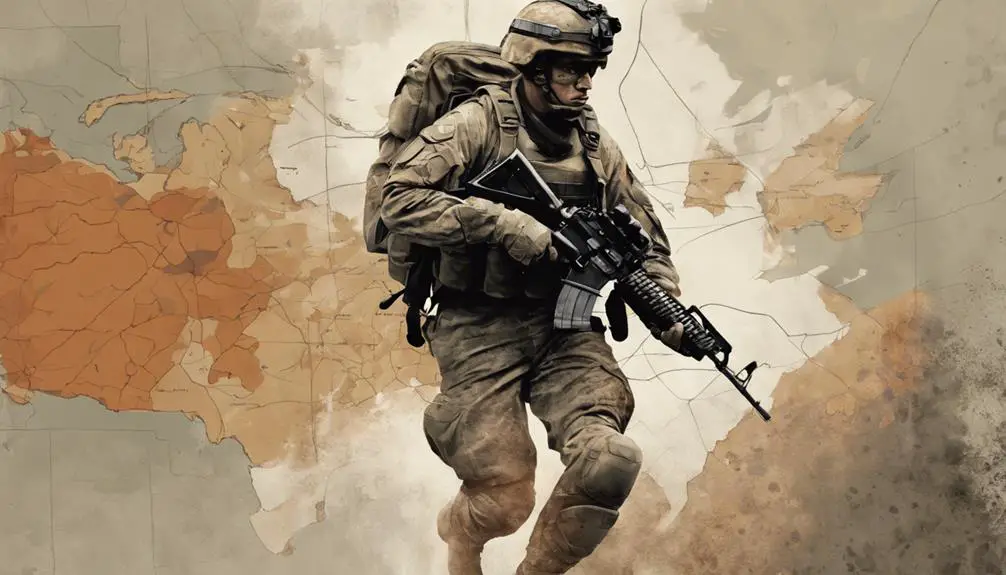
When you explore the world of military slang, you'll often hear the phrase 'Oscar Mike' tossed around, but have you ever wondered where this ubiquitous term originated? Military lingo experts will tell you that 'Oscar Mike' is a phonetic alphabet code used to clearly communicate the letters 'O-M' over radio transmissions. This code, also known as the NATO phonetic alphabet, has its roots in early radio communication history.
In the early days of radio communication, transmission quality was poor, and letters were often misunderstood. To overcome this issue, the military developed a phonetic alphabet to clearly communicate letters. Each letter was assigned a distinct word or phrase, making it easier to understand over noisy radio channels. 'Oscar Mike' is one such combination, used to clearly convey the letters 'O-M'. Today, the term has evolved to mean 'on the move' or 'on mission,' but its origins are deeply rooted in the history of radio communication.
Evolution of Military Slang
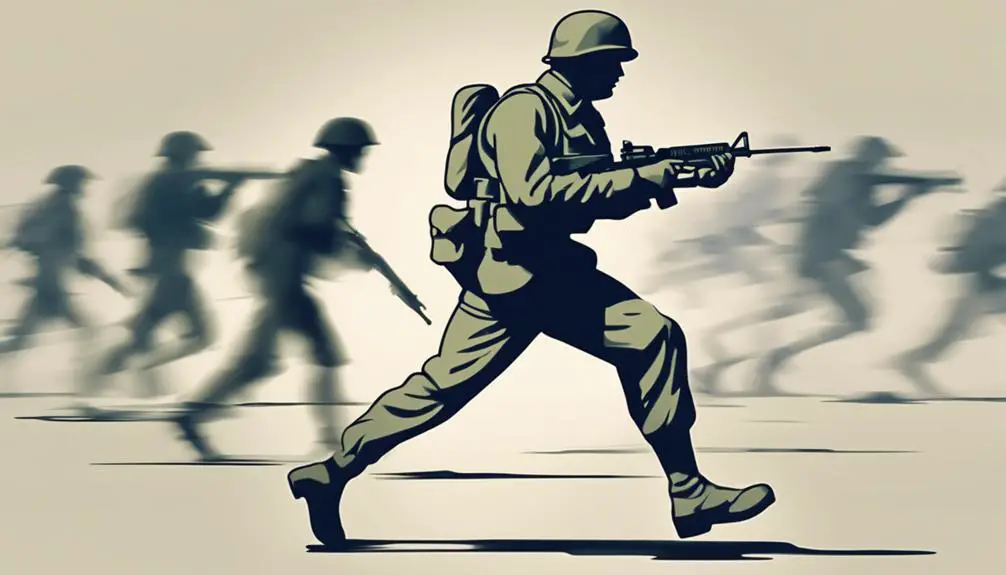
As you explore further into the world of military slang, you'll notice that phrases like 'Oscar Mike' have undergone significant changes over time, reflecting the dynamic nature of military communication. Military linguistics plays an important role in shaping the language used by soldiers, and it's fascinating to observe how slang adapts to new contexts and technologies.
Wartime literature provides valuable insights into the evolution of military slang. Take, for instance, the works of Ernest Hemingway, who served as an ambulance driver during World War I. His writing often features soldiers' colloquialisms, offering a glimpse into the language used by troops during that era. Similarly, authors like Joseph Heller and Kurt Vonnegut, who drew from their own military experiences, incorporated slang into their narratives.
The evolution of military slang is a continuous process, influenced by cultural, social, and technological factors. As you investigate further into this world, you'll discover how phrases like 'Oscar Mike' have become an integral part of military culture, reflecting the adaptability and creativity of soldiers in the face of adversity.
On the Move in Combat
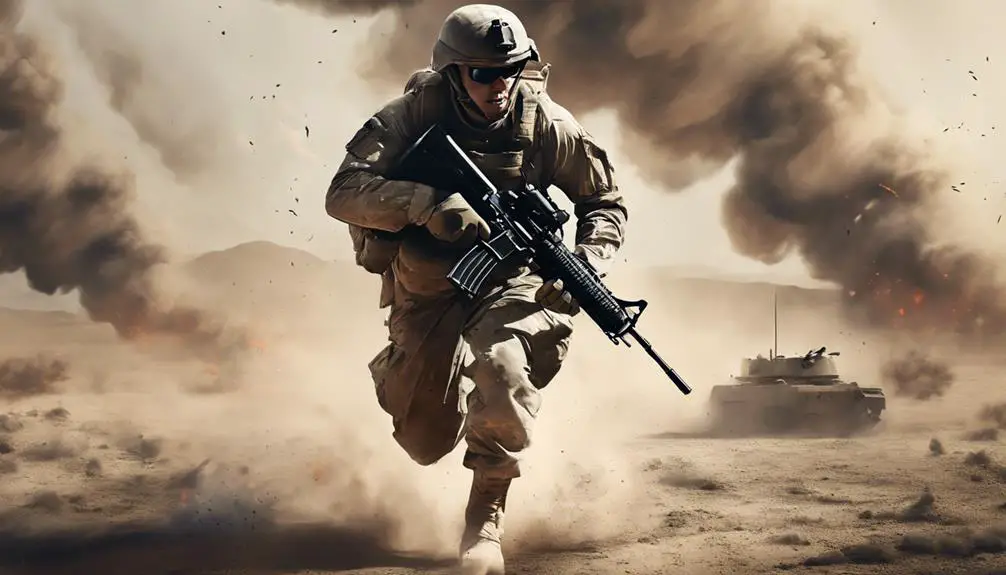
You're about to experience the adrenaline rush of combat mobility, where every second counts and clear communication is a matter of life and death. As you move out, every step counts, and your situational awareness is paramount. You're not just moving – you're making tactical decisions on the fly, adjusting your pace to match the combat pace of your unit.
When the situation demands it, you'll execute a tactical withdrawal, falling back to regroup and reassess. It's not a retreat, but a calculated move to regain the initiative. Your training kicks in, and you move with precision, covering your teammates as you disengage.
In the heat of battle, clear communication is key. You'll use coded phrases and hand signals to convey your intentions, ensuring your team stays on the same page. Every second counts, and miscommunication can be deadly. Stay focused, stay alert, and trust your training. You're on the move in combat, and your mission depends on it.
Branches Adopting Oscar Mike
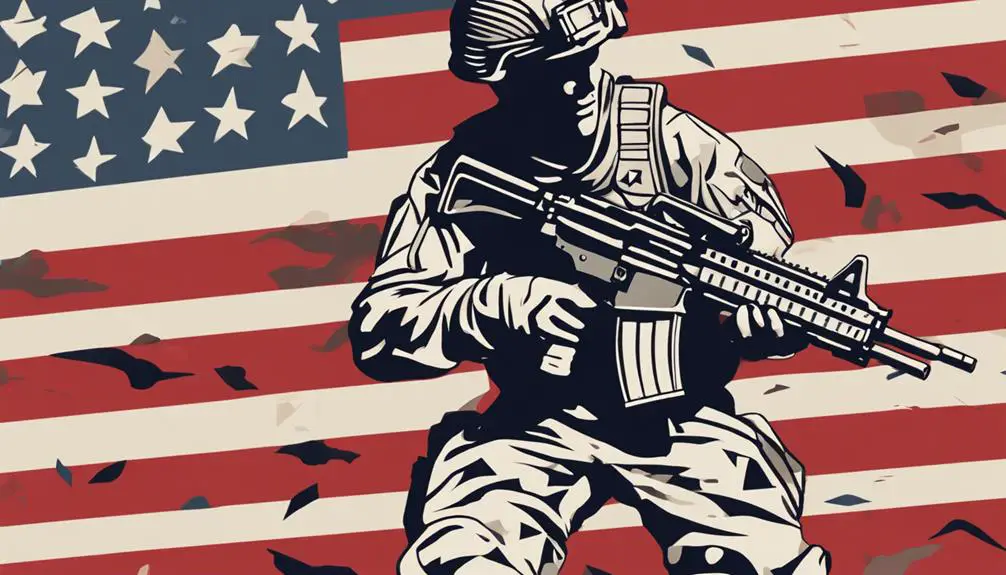
How quickly do the branches of the US military adapt to incorporating 'Oscar Mike' – the military slang for 'on the move' – into their tactical lexicon? You'll be surprised at how swiftly it's become an integral part of their operations. The Marine Corps integration of 'Oscar Mike' is a prime example. They've seamlessly woven it into their communication strategies, ensuring that troops are always ready to move at a moment's notice. The Army special forces have also adopted the term, using it to coordinate rapid deployments and quick responses to emerging threats. As you explore further into the world of military operations, you'll observe that 'Oscar Mike' has become an essential component of their language. It's a demonstration of the adaptability and resilience of the US military that they can so readily incorporate new terminology into their vocabulary. You'll find that 'Oscar Mike' is now a crucial part of their tactical toolkit, enabling them to respond swiftly and decisively in high-pressure situations.
In Popular Culture Today
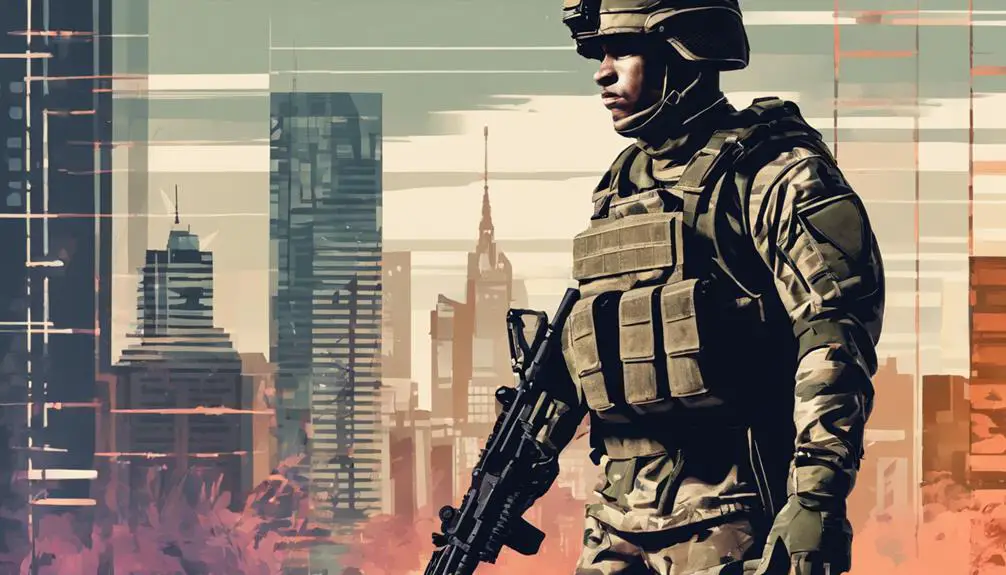
From the battlefield to the big screen, Oscar Mike's influence can be seen in popular culture today, with filmmakers and writers incorporating the term into their scripts to add a touch of authenticity to their military-themed storylines. You'll often hear Oscar Mike being used in war movies, TV shows, and even video games. In gaming communities, you might hear teammates shouting 'Oscar Mike' to signal a push forward or a coordinated attack. Social media influencers, particularly those with a military background, use the term to connect with their audience and add a layer of realism to their content. You might even see it in memes and hashtags, where it's used to express determination or motivation. Oscar Mike's widespread use in popular culture is a confirmation of its enduring relevance and the impact it's had on the way we communicate. As you engage with popular media, keep an ear out for Oscar Mike – you might be surprised at how often you hear it.
Beyond the Battlefield Uses
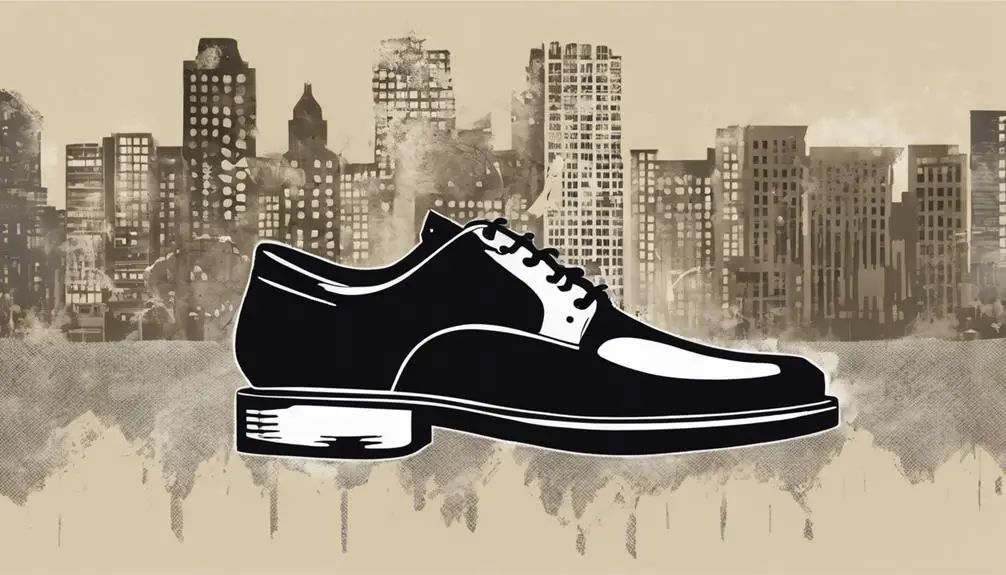
In civilian life, Oscar Mike's utility extends far beyond the battlefield, where it has become a rallying cry for individuals and teams facing formidable challenges. You may not be fighting a war, but you're still fighting for success in your own arena. That's where Oscar Mike comes in – a call to action that motivates you to push forward, no matter the obstacle.
In business, Oscar Mike is more than just a phrase; it's a mindset. It's about executing your strategy with precision, adapting to changing circumstances, and persevering through setbacks. You're not just meeting targets; you're advancing on them. In the competitive world of sports, Oscar Mike is the difference between winning and losing. It's the drive to outmaneuver opponents, to outlast them, and to emerge victorious. You're not just playing the game; you're dominating it. Whatever your arena, Oscar Mike is the battle cry that propels you forward, helping you overcome hurdles and achieve greatness. So, what's your Oscar Mike moment?
Frequently Asked Questions
Is Oscar Mike a Universally Accepted Term Across All Military Branches?
You're about to set out on a mission to uncover the truth about 'Oscar Mike.' This phrase, born from military lingo, has you wondering if it's universally accepted across all branches. Let's delve into it. Oscar Mike's origins date back to the phonetic alphabet, where 'Oscar' represents 'O' and 'Mike' stands for 'M.' While it's widely used, differences emerge among branches. The Army and Marines often use it, but the Navy and Air Force might opt for ' Execute' or 'Proceed' instead.
Can Civilians Use Oscar Mike in Casual Conversations?
You're free to use "Oscar Mike" in casual conversations, but be aware that it may not resonate with everyone. In a casual context, social norms dictate that using military slang might come across as affected or even pretentious. Unless you've got a military background or a clear connection to the term, it's best to stick with more relatable phrases to avoid raising eyebrows.
Is Oscar Mike Used in Other Languages Besides English?
You're wondering if Oscar Mike is used in languages besides English. The etymology of Oscar Mike lies in the NATO phonetic alphabet, where "Oscar" represents "O" and "Mike" represents "M". Globally, similar phrases are used to convey "go forward" or "move out". In French, it's "Oscar Mike" too, while Germans use "Omikro Mike". In Spanish, it's "Oscar Mike" or "Adelante Todo", and in Italian, it's "Vai Avanti". Each language has its own equivalents, but the concept remains the same.
Are There Variations of Oscar Mike in Different Military Contexts?
As you navigate different military contexts, you'll notice variations of "Oscar Mike" emerge. Military lingo evolution is a gradual process, with Branch-specific slang adaptations surfacing over time. You'll find the Army, Navy, Air Force, and Marines each have their own twists on the phrase. For instance, the Navy might use "Oscar Mike" more frequently, while the Army might opt for "Move Out" or "Let's Roll."
Can Oscar Mike Be Used in Non-Combat Military Situations?
You're wondering if Oscar Mike, a term typically associated with combat, is used in non-combat military situations. In stark contrast to the chaos of battle, you'll find it's indeed used in military lingo during training exercises, where clear communication is key. Even in peacetime operations, Oscar Mike is part of standard communication protocols, ensuring efficient execution of tasks and maneuvers.

